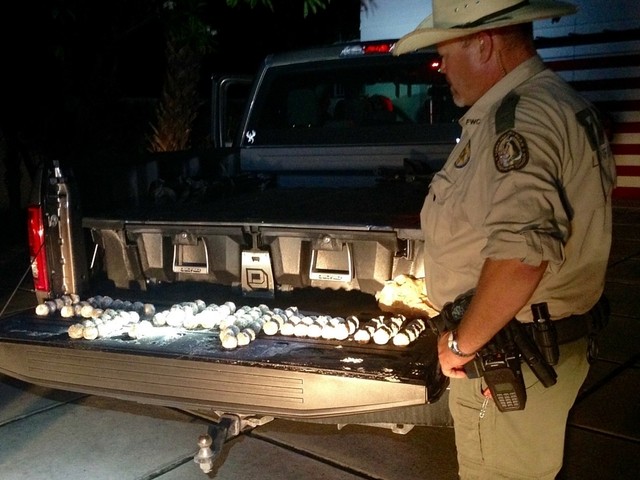A man from Florida is charged with stealing more than 100 sea turtle eggs, as a loggerhead turtle was laying them in a hole on the beach, according to state wildlife officials.
According to the Florida Fish and Wildlife Conservation Commission on Monday, a certain Glenn Shaw from Tequesta was arrested around 10:30 P.M. local time Friday night as officers apparently saw him taking those eggs from a turtle in Jupiter Island, which is located 100 miles north of Miami.
The commission also says that 107 eggs were in Shaw's possession. There are 15 eggs that were also taken as evidence, that will be examined for DNA testing and the 92 remaining eggs will be buried again in the sandy shores, where they are expected to hatch later this year.
Shaw, 49, is now charged with third degree felony for the violation of the marine turtle protection act, according to commission officials and jail records. In Florida, taking and keeping sea turtle eggs is punishable by law, with up to five years in prison including a fine of US $5,000.
The commission apparently received a tip from Florida Fish and Wildlife Conservation biologists that a possible suspect was stealing turtle eggs from behind a home in Jupiter Island beach. In light of this, patrols were tightened and officers increased where they spotted this alleged poaching.
According to Florida Fish and Wildlife Conservation captain Jeff Ardelean, the commission is very serious about protecting Florida's natural resources and we are thankful that this individual was captured and prevented any more harm to the threatened species.
To date, loggerhead turtle eggs that were confiscated from Shaw are now being observed by officers of the Florida Fish and Wildlife Conservation.
Loggerhead turtles are native to the northwestern and southern Atlantic Ocean, which are officially listed as threatened under the Endangered Species Act, according to the United States Fish and Wildlife Service.



























